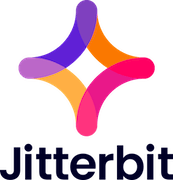Looking for the best iPaaS software? Our comprehensive buyers guide compares top providers, features, pricing, and more to help you make an informed decision. Discover the perfect solution for your business today!
Integrating multiple applications is a critical requirement for any organization. However, companies are increasingly finding it challenging to build, deploy and manage integrations primarily because of the complexity of the integration process and a lack of integration expertise. This is where integration platform as a service (iPaaS) comes in. iPaaS is a modern integration solution that simplifies the process of connecting data and applications, enabling businesses to transfer data between systems efficiently and effortlessly. With numerous iPaaS solutions available in the market, choosing the right one for your business can be a daunting task. This buyer's guide will provide you with everything you need to know to make an informed decision and choose the right one.
What is an integration platform as a service (iPaaS) software?
This is an innovative solution that enables organizations to seamlessly connect various systems, applications, data, and people across their business and partner ecosystems. It is quickly gaining popularity, with the market value approaching $700 million, according to the 2017 iPaaS Magic Quadrant customer reference survey.
Organizations use it for more than just cloud integration. The platform boasts ease of use, short integration time, and high adaptability to on-premises equivalents. The following is a list of its common use cases:
- Cloud integration: Enables the integration of cloud-based applications, data, and services allowing for seamless communication, automation and flexibility.
- Application integration: Integrates different applications within the same IT environment, reducing complexity and improving efficiency.
- Data integration: Connects different databases within an organization and allows data sharing across business units, improving data accuracy and timeliness.
- B2B integration: Connects a company’s systems with those of partners, vendors, distributors, and suppliers, enabling efficient and secure communication and streamlined business operations.
- IoT integration: Facilitates the connection of smart devices, sensors, and other Internet of Things (IoT) technologies, allowing for real-time data flow, automated actions, and improved decision-making based on data analytics.
Companies of all sizes and industries can benefit from iPaaS software. Small to medium-sized enterprises can leverage it for efficient and affordable integration purposes. Meanwhile, large organizations can benefit from an enhanced level of real-time insights, easy maintenance, and scalability provided by this technology. According to a report by Gartner, "in 2023, over 50% of large and midsize organizations globally were expected to have deployed at least one iPaaS offering, up from approximately 35% in 2020."
Integration platform as a service (iPaaS) software is a powerful tool that streamlines business operations across various systems and platforms. By embracing it, companies can tap into the potential of cloud integration, application integration, data integration, B2B integration, and IoT integration, and boost efficiency, reduce operational costs, and enhance decision-making capability.
What are the benefits of iPaaS apps?
This system is becoming increasingly essential for businesses across several industries. Whether you're a startup or a well-established enterprise, iPaaS empowers you to streamline operations by automating workflows while also improving overall efficiency and productivity.
Here are some of its key benefits:
- Enabling faster and more efficient connections between cloud-based and on-premise applications, databases, and systems
- Reducing the time and cost associated with manual coding, testing, and maintenance of integrations
- Allowing greater flexibility and scalability to rapidly respond to changes in demand, business requirements, and market conditions
- Offering real-time data analytics and insights to enable better, data-driven business decisions
- Minimizing the risk of errors, data duplication, and other common integration challenges, improving the accuracy and consistency of data across the organization
- Increasing collaboration and communication across business units and global teams, thus improving overall productivity
- Enhancing customer experiences by providing a seamless omnichannel engagement through integrated applications. According to an iPaaS market study, 78% of companies mention the “seamless addition of new integrations” as a major benefit of using iPaaS.
By adopting iPaaS software, your company will experience a more streamlined and efficient workflow, resulting in significant cost and time savings and, ultimately, driving profitability and growth.
10 key features of an integration platform as a service solution
This platform has become increasingly popular in recent years as corporations seek to streamline their operations and increase efficiency. iPaaS makes it easy to integrate various software applications used in different departments, minimizing manual data entry and reducing errors. In this section, we'll highlight a wide range of the common features of iPaaS software that make it so valuable to business logic.
- User-friendly interface: Its features has intuitive and user-friendly interface that allows users to design, test, and deploy complex integrations with ease. Users can drag-and-drop connectors and adjust the settings to create automation workflows, making it easy for businesses to implement new integrations quickly.
- Scalability: This tool can scale up or down based on business needs, ensuring that it can handle workloads of any size or complexity. This scalability makes it perfect for enterprises experiencing growth or those looking to improve their operational efficiency.
- Real-time data integration: It enables businesses to integrate real-time data from various sources, including on-premises and cloud applications. iPaaS platforms provides the ability to make critical organizational decisions based on accurate, real-time data.
- Pre-built connectors: Most iPaaS software comes with pre-built connectors for various applications, reducing the time and cost associated with building custom integrations.
- Custom connectors: Although pre-built connectors are available, businesses may require custom connectors to integrate with legacy systems or proprietary applications.
- Data transformation: iPaaS apps can transform data from one format to another, optimizing it for specific applications. This feature eliminates the need for manual data entry and reduces errors caused by data format inconsistencies.
- Improved workflows: This platform can automate workflows, reducing the manual efforts needed to perform specific tasks. This automation function makes it easy for firms to free up time and resources and focus on other important tasks.
- Security and compliance: These software platforms prioritize data security and come with robust security measures that protect data from unauthorized access, ensuring compliance with data protection regulations.
- Monitoring and reporting: It provides businesses with monitoring and reporting tools to help them track integration performance and detect issues as they arise. Companies know the status of each integration and can troubleshoot issues in real-time.
- Faster time-to-market : It also reduces the time it takes to deploy new integrations, providing businesses with a faster time-to-market.
This application is a valuable asset for businesses of all sizes. Its features can help improve operational performance, reduce errors, and increase efficiency. When choosing an iPaaS platform, businesses should consider their specific needs and select a platform that offers pre-built connectors, custom connectors, automated workflows, real-time data integration, data transformation, scalability, security, monitoring, and reporting.
Things to consider when buying an integration platform as a service system
This system has proven to be a critical solution for helping businesses leverage their digital assets and streamline their operations. Choosing the right one is essential for ensuring that the business's integration needs are met and that the chosen solution offers scalability, reliability, and flexibility. Here are some key factors to consider when purchasing it:
1. Integration capabilities
The first and foremost factor to consider is its integration capabilities. You should ensure that the chosen solution seamlessly integrates with your existing systems, applications, and data sources. Evaluate the vendor's integration documentation, which APIs, connectors, and protocols they offer, and also note the number of pre-built templates they have available. A good iPaaS vendor will have extensive integration capabilities to save your business the cost of developing custom connectors.
2. Ease of use and configuration
A good one should be easy to use and manage without requiring extensive coding skills. Businesses should consider choosing a solution with an intuitive and user-friendly interface that enables the platform's setup to be simple, and integrations to be built out with ease. Look for iPaaS vendors with drag and drop tools that enable even non-technical users to create and manage integrations efficiently.
3. Scalability and performance
As your business grows, the volume of data and transactions your iPaaS system will have to handle will also increase. It's essential to choose one that can scale with your business needs and offer reliable performance for the number of transactions you need to process. Consider the iPaaS provider's technical documentation to evaluate their capacities, and verify that it support distributed application architecture and microservices pattern for certain types of integration.
4. Security features
Data security and privacy are critical concerns in today's digital world. When selecting an iPaaS platform, your business must ensure that the solution provides the highest level of security and has strong data protection policies. Look for a solution offering TLS encryption, firewalls, and data access control features. Also, ensure the iPaaS vendor's development methodology aligns with industry standards, regularly undergoes pen testing, and pays attention to their regulatory compliance, such as the General Data Protection Regulation (GDPR).
5. Cost and ROI
Finally, it's important to keep in mind cost and return on investment (ROI). The cost of iPaaS solutions can vary significantly, so take the time to analyze and compare the cost of different iPaaS vendors and the value you expect to receive from them. Ascertain if the solution aligns with your company's budget while meeting your integration needs. Look out for consulting fees for custom development or implementation, licensing fees, and monthly or yearly subscriptions.
Evaluating these considerations and researching vendors will ensure selecting an iPaaS solution that will be both beneficial and sustainable for your business's digital growth.
Industry trends for Integration platform as a service (iPaaS) Software
iPaaS software allows businesses to streamline their workflows by automating routine data transfer and integration tasks between different systems, applications, and databases. As we head further into 2024 and beyond, this critical innovation is showing no signs of slowing down. In fact, there are several new trends that are likely to dominate its landscape in the coming years.
Trend #1
The first trend is the increasing use of (AI) artificial intelligence and machine learning algorithms. This technology has the potential to revolutionize the way businesses handle complex data integration tasks by automating many of the most labor-intensive aspects of the process. In future the application expects to see more AI-powered solutions for data mapping, transformation, and validation.
Trend #2
Another trend to watch out for is the rise of low-code (and no-code) integration platforms. As businesses increasingly demand faster and more efficient digital transformation, low-code platforms have emerged as the go-to solution for businesses that need to integrate their disparate systems without the need for a dedicated team of developers. In the coming years, iPaaS software that uses low-code development will become more widespread than ever.
Trend #3
The third trend to keep in mind is the increasing importance of data governance and security. As more businesses rely on iPaaS to integrate their data, ensuring that sensitive information is adequately protected will become an even more pressing concern. Expect future iPaaS solutions to incorporate more advanced data encryption, access control, and compliance features.
Trend #4
Lastly, iPaaS technology is expected to put more emphasis on API management. As businesses adopt more cloud-based applications and microservices, they will need a way to manage their APIs more efficiently. Advanced iPaaS solutions will give business users the ability to manage their APIs from a single dashboard, track usage, and identify potential issues before they become critical.
Conclusion
In conclusion, iPaaS software is an essential tool for businesses looking to streamline their digital workflows and integrate their systems and applications successfully. As technology continues to advance, it's clear that the future of iPaaS tools is bright. By embracing the essential features outlined in this guide, businesses can take their iPaaS integrations to the next level this year and beyond.







